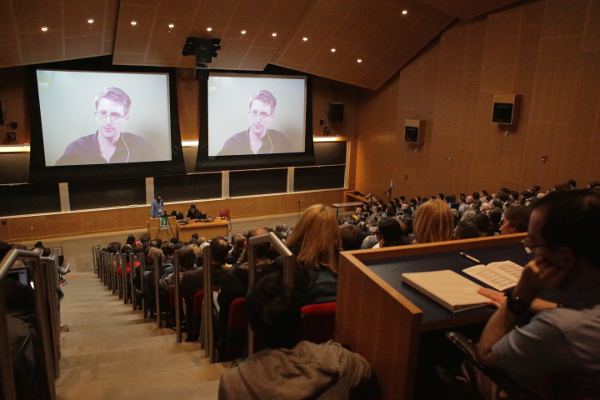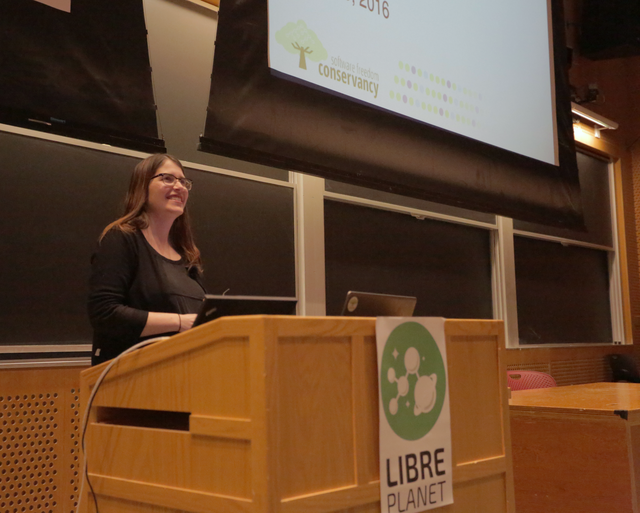LibrePlanet conference videos and slides online: Edward Snowden, Richard Stallman, Karen Sandler, and more
mardi 31 mai 2016 à 17:45Boston, Massachusetts, USA – Tuesday, May 31, 2016 – The Free Software Foundation (FSF) today announces that recordings and slides from its LibrePlanet 2016 free software conference are now available online.
LibrePlanet 2016: Fork the System was held in the Massachusetts Institute of Technology's Stata Center on March 19 and 20, 2016. Video for the opening keynote with NSA whistleblower Edward Snowden and dozens more sessions from the conference – over 25 hours of free software ideas – are available on the FSF's instance of GNU MediaGoblin, a free software media publishing platform that is a decentralized replacement to sites like YouTube and Flickr.
Recorded talks include Free software, free society by Allison Randal, current and past director of multiple foundations in the world of free software; Companies, free software, and you by Karen Sandler, executive director of the Software Freedom Conservancy; The Free Software Awards with a talk by Richard Stallman, founder of the Free Software Foundation; Restore online freedom! by Mike Gerwitz, GNU Project volunteer; and Inessential weirdnesses in free software by Sumana Harihareswara, founder of Changeset Consulting.
The LibrePlanet 2016 program has links to all recorded talks and their accompanying slides. All sessions recorded for LibrePlanet 2016 are now available – 33 talks in all. For more information about how the sessions were recorded with free software, see intern David Testé's post about his experience creating the fully free streaming software package, ABYSS.
LibrePlanet 2016 was produced in partnership by the Free Software Foundation and the Student Information Processing Board (SIPB) at MIT.
About the Free Software Foundation
The Free Software Foundation, founded in 1985, is dedicated to promoting computer users' right to use, study, copy, modify, and redistribute computer programs. The FSF promotes the development and use of free (as in freedom) software – particularly the GNU operating system and its GNU/Linux variants – and free documentation for free software. The FSF also helps to spread awareness of the ethical and political issues of freedom in the use of software, and its Web sites, located at fsf.org and gnu.org, are an important source of information about GNU/Linux. Donations to support the FSF's work can be made at https://my.fsf.org/donate. Its headquarters are in Boston, MA, USA.
More information about the FSF, as well as important information for journalists and publishers, is at https://www.fsf.org/press.
Media Contacts
Georgia Young
Program Manager
Free Software Foundation
+1 (617) 542 5942
campaigns@fsf.org

